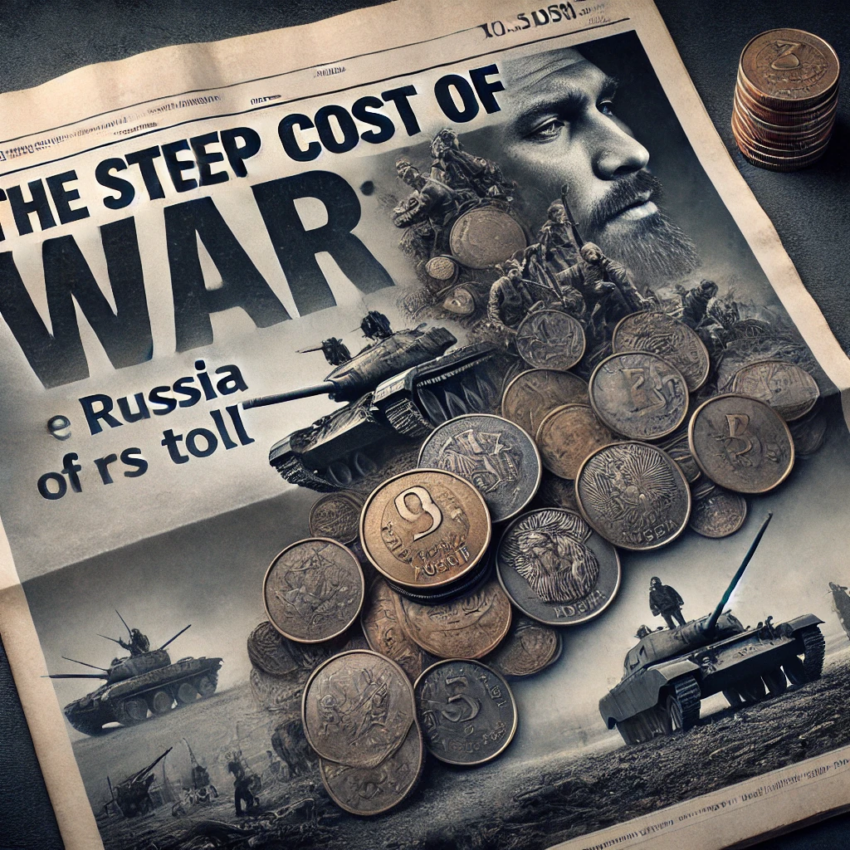As the conflict in Ukraine persists, Russia’s expenditures—both financial and human—have escalated dramatically, revealing a deepening crisis that might have long-term repercussions for the nation. The war’s toll is multifaceted, involving substantial economic resources, significant military equipment losses, and a grievous number of casualties.
Economic Strain on Russia’s National Wealth Fund
Russia’s National Wealth Fund (NWF), initially set up to cushion the economy against oil price fluctuations, is now under severe strain as it is redirected to fund the war. Over the past two years, a significant portion of this fund has been depleted. With the current rate of military expenditure, estimates suggest that Russia could face critical financial pressures within the next two years unless alternative solutions are found or military expenses are drastically reduced. This rapid depletion poses a risk not just to Russia’s ability to sustain its military operations but also to the broader economic stability of the country.
Human Costs of the Conflict
The human cost of the conflict is equally stark. According to reports by the Ukrainian armed forces, over 550,000 Russian soldiers have either been killed or injured since the invasion began in February 2022. This staggering number highlights not only the direct impact on the military but also the profound effects on Russian society and families across the nation.
Loss of Military Equipment
The material losses in the war further compound Russia’s challenges. Significant quantities of military hardware have been destroyed or rendered inoperable. As reported, the Russian forces have lost 8,155 tanks, 15,645 armored vehicles, 14,937 artillery systems, 1,115 multiple rocket launch systems, 2,352 cruise missiles, 360 aircraft, 326 helicopters, 11,862 drones, 28 warships, and a submarine. These losses represent not only a substantial financial burden but also a depletion of military capabilities that could take years, if not decades, to fully replace.
Long-term Implications
The war’s financial and human costs have immediate and potentially enduring consequences for Russia. Economically, the continued reliance on the NWF to finance the conflict could lead to significant national financial distress if the war extends beyond the fund’s capacity. The loss of life and equipment also erodes military strength and national morale, posing challenges to both domestic stability and international positioning.
In conclusion, Russia’s engagement in the conflict in Ukraine is extracting a high price. As the NWF dwindles and the casualties rise, the sustainability of continued conflict comes into question. The long-term impacts on Russia’s economy, its global standing, and its citizens are profound, underscoring the immense costs that come with prolonged military engagements.
Andrea Bodei
EUCIF
The European Cyber Intelligence Foundation is a European non-profit think tank specializing in intelligence and cybersecurity, offering consultancy services to government entities

